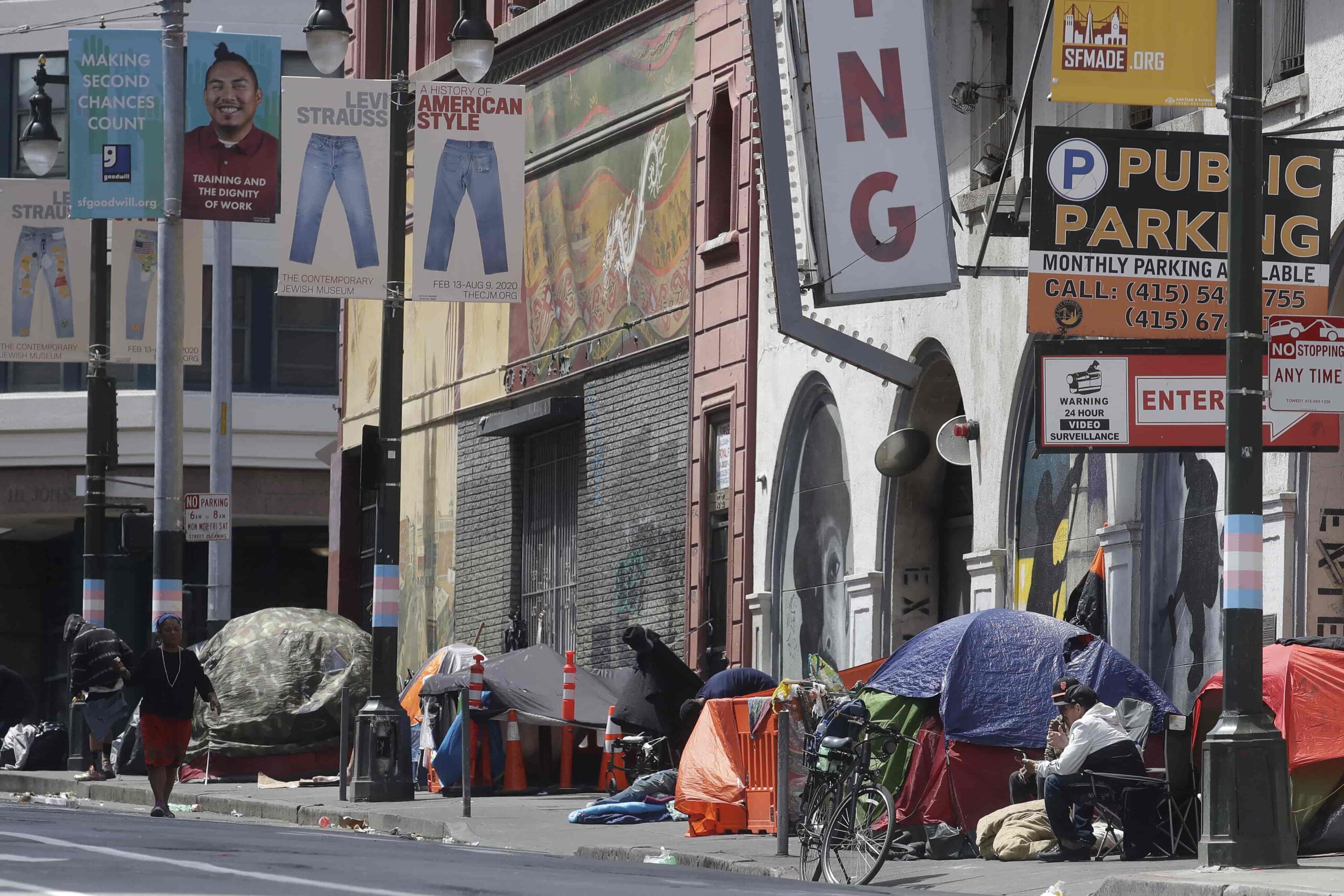Last week, San Francisco unveiled a new $6.5-million plan aimed at ending trans homelessness within five years. San Francisco is the first city in the United States to commit to ending the epidemic of homelessness among trans Americans.
According to San Francisco mayor London Breed, the initiative will subsidize long-term housing for at least 150 people through the city’s Flexible Housing Subsidy Pool. While most of the funds will, however, go toward short-term rentals and flexible financial assistance to trans San Franciscans and support for the nonprofits working with them, the city also intends to develop a permanent housing complex for marginally housed trans people.
An estimated $500,000 will fund behavioural and mental health services for trans and gender nonconforming people who are homeless or at risk of becoming homeless.
In a speech announcing the budget proposal, Breed noted that trans and non-binary San Franciscans “are 18 times more likely to experience homelessness compared to the general population.” This is true across the U.S.: a 2020 study from the Williams Institute, a nonprofit think tank at the University of California, found that trans Americans were eight times more likely than their cis counterparts to have experienced homelessness.
“Given our rich legacy of trans activism, San Francisco is well positioned to lead the country and the world on ending homelessness for trans communities.”
Breed further stressed the importance of providing shelter for San Francisco’s trans population, which she noted is one of the largest in the country.
“We not only must ensure that all San Franciscans have access to housing and essential resources through continued investments, but we can show the country that we continue to be a leader in supporting and protecting our trans communities,” she said.
The project will be a joint effort between the Mayor’s Office on Housing and Community Development, the Department of Homelessness and Supportive Housing, the Department of Public Health, the Office of Transgender Initiatives and nonprofits working in the interests of homeless transgender and gender nonconforming people.
Many trans advocacy groups have applauded the move, describing it as a much-needed resource for marginalized populations.
“Given our rich legacy of trans activism, San Francisco is well positioned to lead the country and the world on ending homelessness for trans communities,” said Aria Sa’id, a trans rights advocate and chief strategist of the Transgender District, in a statement. “As trans people, we have had to be bold and resilient to even survive, and by ensuring that all our TGNC [transgender and gender nonconforming] residents have a safe place to call home, we will open the door toward truly providing equitable housing and economic solutions to trans people.”
The proposal has faced some controversy. Conservative critics have claimed the pledge is unconstitutional, and that its sole focus on trans homelessness violates the Equal Protection clauses in both the U.S. and California constitutions. (Several legal experts told the SFGATE, however, that the plan is unlikely to be tossed out by a court.)
Breed’s office is also likely to be met with accusations of pinkwashing after the mayor temporarily backed out of the San Francisco Pride parade over organizers’ ban on uniformed officers participating in the event, and issued a statement in support of local police. Pride organizers eventually reached a compromise that would allow for a few uniformed officers to march in the annual parade, which is scheduled to take place on June 26.
But as the city moves past these disputes, LGBTQ2S+ activists said San Francisco’s vow to end trans homelessness will make a major impact on “disproportionately impacted communities.”
“These investments will allow us to prioritize equitable services for some of San Francisco’s most vulnerable persons, and to provide safe, stable and affordable housing, as well as wraparound services, to a community that is struggling to survive,” said Sharyn Grayson, co-executive director of the TGI Justice Project, in a statement.


 Why you can trust Xtra
Why you can trust Xtra


